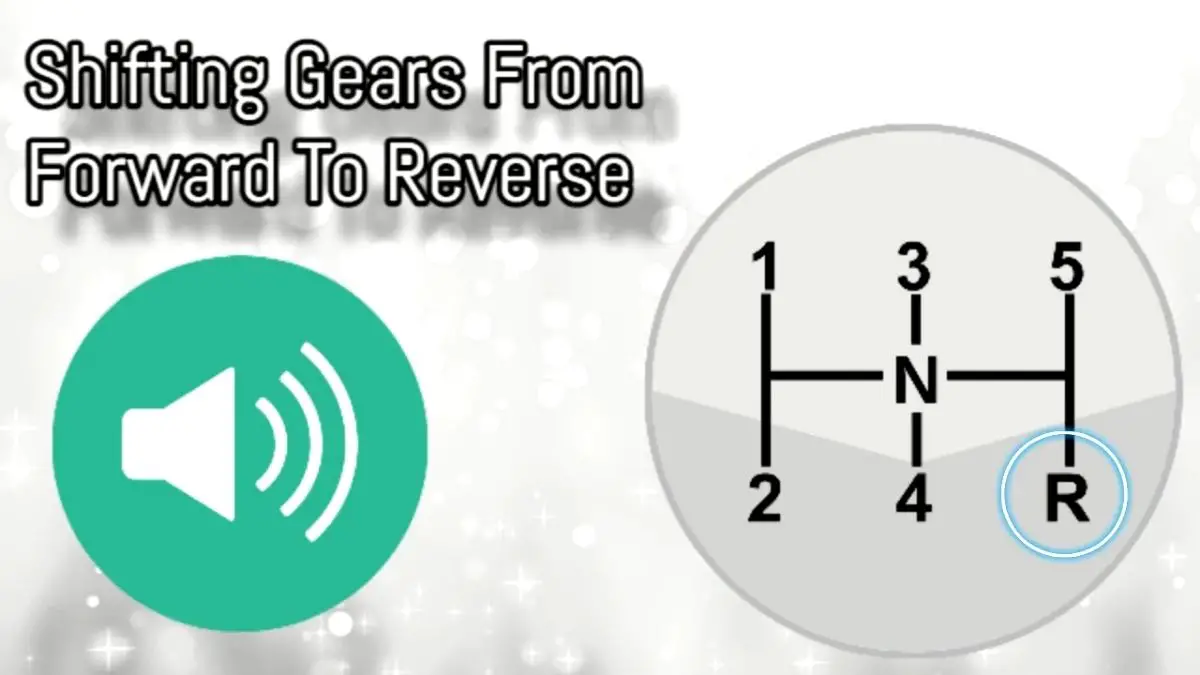When you’re parking your car, whether it’s in the driveway or at the mall, you might notice a popping noise coming from the rear of your vehicle when you shift into reverse gear. This can be pretty alarming and make you wonder why this sound occurs.
In this article, we’ll take an in-depth look at why you might hear this popping noise.
Table of Contents
Why does your car make a popping noise in reverse?
If you’ve ever heard a popping sound when backing up your car, you’re not alone. This noise is coming from your car’s transmission.
The noise is not just annoying, it can be alarming. Fortunately, there’s a reason behind it. The popping sound is caused by your transmission trying to synchronize its gears. Usually, when you press on the gas pedal in reverse and go into first gear, that popping noise occurs. This popping sound should go away in a few seconds once your car finds itself in sync with its other gears.
To figure out why your car makes a pop during reversing, you need to look at what is happening inside of your transmission. Your car has three types of transmissions: manual, automatic and continuously variable transmissions (CVT). Each one works differently and each one will create different sounds as they attempt to engage their gears.
With manual transmissions, for example, when you go into reverse, there is no gear already engaged. This means that your car needs to switch from first gear to reverse. The gears must get into sync before they can be used so they do that by popping into place. Sometimes, one of these gears may get stuck and make an even louder noise than usual. What happens next will depend on what kind of transmission your car has.
If you have a CVT or automatic transmission, eventually everything will sync up quietly without any pops. If you have a standard manual transmission with more than three gears, though, sometimes it gets stuck in second gear instead of going straight to reverse.
Your car makes a popping noise when you reverse because it needs to sync its gears. Each
Why does my car stutter when in reverse?
If you have noticed that your car is stuttering or makes an unusual noise when backing up, there could be several causes for these symptoms. The sound and feel of your car in reverse are influenced by various components within your transmission system. Each one plays a role in ensuring your car’s performance while reversing.
When you place your car in reverse, fluid is pushed through your transmission system to engage and then move each of your vehicle’s gears. The hydraulic lines that help accomplish these actions can become clogged with debris over time if they aren’t cleaned regularly.
Not only does debris cause roughness or stuttering when your car moves into reverse, but it can also damage certain components within your transmission system. This issue typically requires repair as soon as possible for optimal performance and reliability.
Why my car shuts off in reverse?
Some drivers report that when they put their car in reverse, it shuts off completely. This can be especially alarming if you’re traveling at high speeds. It might be easier to restart your vehicle by putting it in drive and then into reverse again rather than shutting off and then starting up again.
If you notice that your car shuts off when you put it in reverse, it might be due to Idle Air Control (IAC) Valve, and see if it is plugged up . If an IAC valve is plugged up, an engine will stall out when going into gear and could cause issues when slowing down.
Other reasons for your car shutting off in reverse could be a torque converter, vacuum leaks, or a wiring harness fault.
What happens if I turn off my car in reverse?
A standard car transmission has three gears: Park, Reverse and Drive. The transmission has a park mode, which locks both wheels so that your car doesn’t roll forward or backward when you turn off your engine in reverse.
In most car models you will not be able to remove the key from the ignition, and you will not be able to start it again until you put it into neutral or park.
Why does my transmission clunk when I put it in gear?
When you reverse your car and put it in drive or first gear, you may hear clunking noises.
This noise tends to happen when you change gears quickly, so don’t rev up your engine, give it some time to get into gear smoothly before moving forward.
Also, make sure that any fluid levels are adequate as that can cause issues with shifts as well. Lastly, make sure you keep an eye on your parking brake as well – if left engaged for too long it can cause some damage over time… even going so far as brake failure.
Motor and transmission mounts provide a cushioned point-of-contact between them and your vehicle’s frame. If there is play in these mounts it can result in some strange noises when driving and shifting gears. The transmission mount actually helps to improve both vehicle handling and performance by helping absorb road shock and reducing vibrations, wear and tear on all internal components of your transmission (like bearings), providing crucial support to both sides of your transmission.


